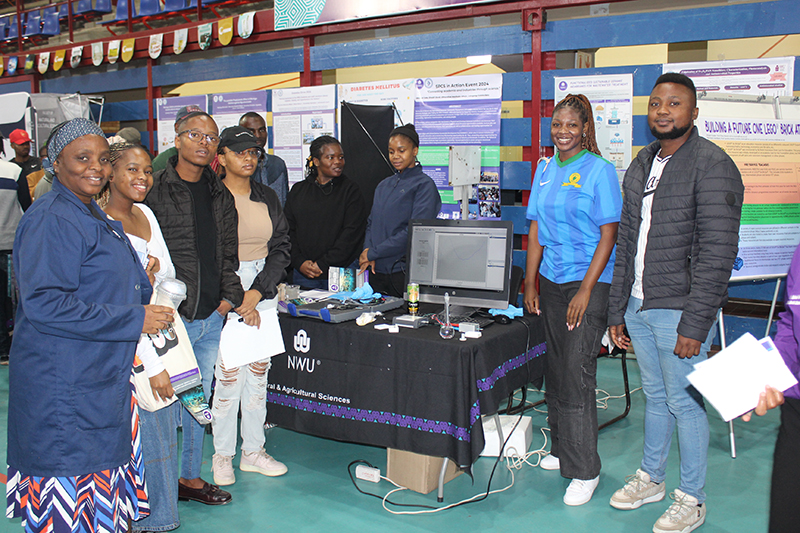In a much-needed boost for food safety monitoring in South Africa, sophisticated sensors are being developed at the North-West University (NWU) to detect vitamins, harmful chemicals and contaminants at microscopic levels.
Prof Omolola Esther Fayemi of the subject group Chemistry is leading a research group working on innovative ways to detect important substances in food, water and the environment, using advanced sensors.
One recent project demonstrated how these sensors can be used to detect ascorbic acid, commonly known as vitamin C, in drinks. Vitamin C is important in helping the body absorb nutrients, heal wounds and maintain a strong immune system.
The research team recently showcased their work during a community engagement event at the Mahikeng Campus, explaining how these sensors work and their benefits.
A master’s student from the group demonstrated a special sensor designed to measure vitamin C in oranges. Using a carbon-based material, the sensor was able to detect vitamin C much more effectively than regular sensors. The response of this new sensor was four times stronger than a basic one.
“The results have been highly accurate, and we are excited about the potential of these sensors in everyday applications like food quality testing,” said Prof Fayemi. “This technology could improve how we monitor nutrients and ensure the safety of what we consume.”

Prof Omolola Fayemi (far right) and her team recently showcased their work during a community engagement event.
